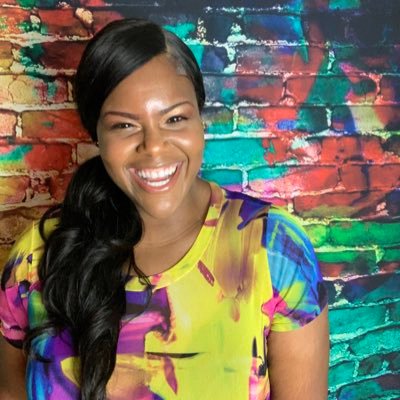Mercy Celebrates Black History

February is the celebration of Black History Month, which seeks to recognize and celebrate African-American heritage in the United States. It is also a moment of reflection in an era where social justice has become the center of attention.
“We need a month in which Black History is illuminated. This is something that should be taught every single day of the year, but it is nice to have one particular month that focuses on black history,” said Prof. Dana Horton.

Every year, Mercy College honors this month of empowerment and organizes various events where important figures in history are recognized and remembered for their contributions to the cause of equality, efforts to develop strong communities, and gifts for cultural enrichment.
On Feb. 11, Mercy hosted a live virtual spoken word with the artist Joan ‘Lyric’ Leslie, where she focused on social justice, self-love, and humor. Leslie is an author, a slam poet, a back-to-back Queen of the South Poetry Slam Champion, and a story-teller whose work journeys through self-discovery and self-love while incorporating a fair share of humor and wit. She uses poetry to call attention to social issues and to challenge systemic injustice. Leslie has been performing for audiences in academic, corporate, and social spaces throughout the country since 2009. She currently tours the college market and slams poetry venues using her stories, poems, and comedy to empower youth and communities of color to share their truth.
On Feb. 18, Mercy College celebrated Black History Month and the influence of black music around the world with two special speakers: Aaron Flaggs, the chair and associate director of Julliard Jazz studies at the Julliard School, and Dana Horton, an assistant professor of English at Mercy. They covered Black Americans’ influence on the music and culture of the United States in the 18th, 19th, and 20th centuries.
It was mentioned that the first American classical music artist to achieve international fame.
“Louis Gottschalk was a pianist and the first to have an international career as a classical concert pianist and was known for taking sounds from the Caribbean,” explained Flaggs.

He asked the audience what kind of music African-Americans contributed to the world. And the answers were vital: blues, ragtime, jazz, gospel, soul, house, or hip hop are genres that come from or are influenced by the culture of the African American community in the United States. In fact, according to Medium, “the roots of the uniquely American music lay in those rhythms emanating from the same continent that gave birth to humankind. It was from the shores of Africa that slaves were imported to the Americas in droves, bringing with them the core of the music that would later engulf the world.”
“It is important to acknowledge music and how music is such a foundation of American culture and particularly how black people influenced in music,” said Horton.
Horton focused on her passion for Hip Hop and explained this style’s connection to black culture.
“Hip Hop started out as a form of black expression, and essentially black people use it to celebrate themselves, and create unity and a sense of community amongst each other.”
She explained how people can learn more about black history through hip hop because rappers talk about political issues, socioeconomic issues, poverty and injustices.
“Music is the soundtrack to life. No matter what you are going through, you are always going to be able to find a song that captures that emotion, and hip hop does that very effectively.”
For Horton, the black community’s experience has long been the main driver of protest music in America. From the spiritually clinging abolitionists to the 1960s civil rights movement, they have all been impulsed by jazz, funk, rock, gospel, and rhythm and blues.
“Music and black ambitions were allowed to occupy spaces that the black population, in general, could not,” she noted.
It is that now more than ever, the force of Afro-American music resonates in the cities with anti-racist protests. The protesters against racism have honed their creativity to accompany the United States’ protests with allusive songs, where new music is mixed with the classics.
According to NPR news, “Within days of Floyd’s death, prominent black musicians across a variety of genres began to write and release songs that expressed grief, rage, exhaustion, and resolution in the face of America’s 400-year history of institutional racism. Some directly invoked by name black victims who have died during encounters with the police. Others produced new, provocative videos for older songs that spoke to the moment.”

Daniela was born and raised in Barcelona, Spain. In the fall of 2016, she moved to the US with her family. This became a major turning point in Daniela’s...







